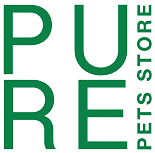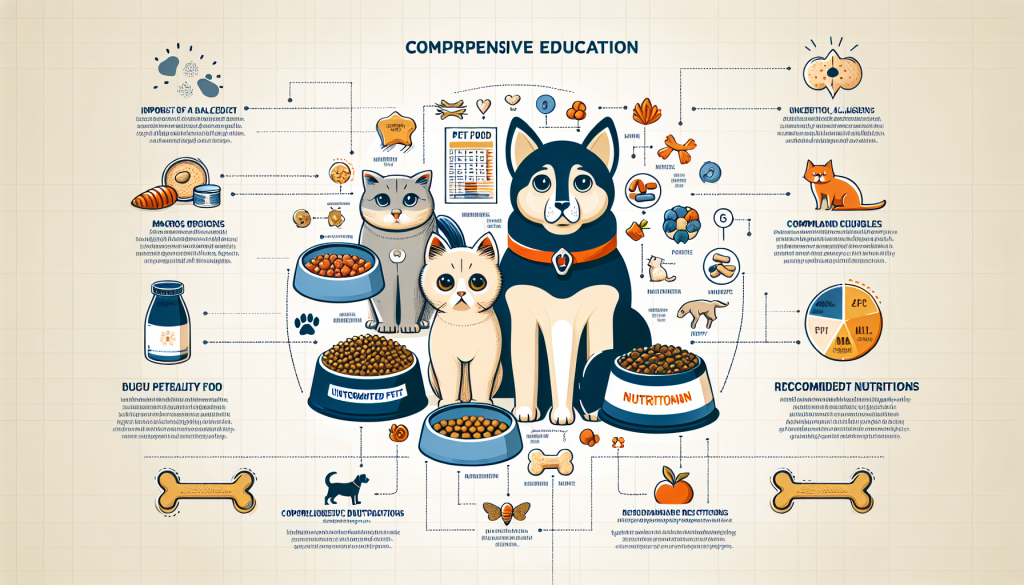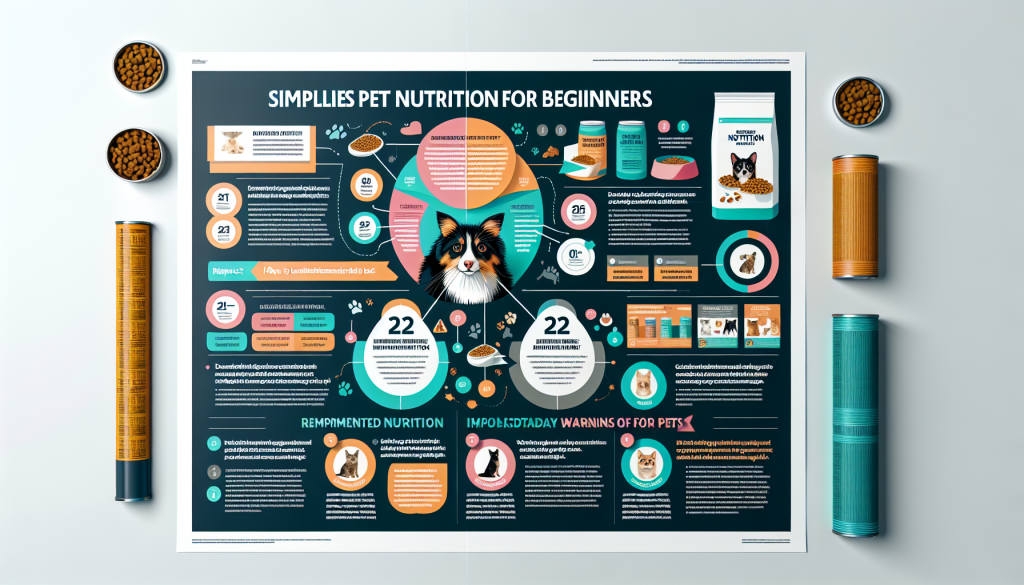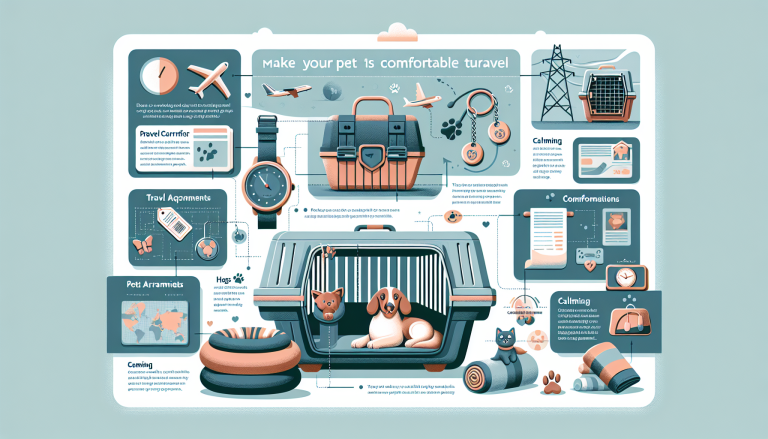Are you a new pet owner looking to provide the best nutrition for your furry companion? Look no further than our Beginner’s Guide to Pet Nutrition: What You Need to Know. In this guide, we will explore the essentials of proper pet nutrition, including the importance of balanced meals, understanding pet food labels, and common dietary restrictions. Whether you have a cat, dog, or even a bird, this article will help you make informed choices to keep your beloved pet healthy and happy. So, let’s embark on this nutritional journey together!
Table of Contents
ToggleUnderstanding Pet Nutrition
The Importance of Proper Nutrition for Pets
Proper nutrition plays a vital role in the overall health and well-being of our pets. Just like humans, pets require a balanced diet to support their growth, development, and immune system. By providing our furry friends with the right nutrients, we are giving them the best chance at a long, healthy life.
Different Nutritional Needs for Different Pets
It’s important to understand that not all pets have the same nutritional needs. Dogs, cats, birds, and small mammals all have different dietary requirements based on their species, age, size, and activity level. For example, puppies and kittens have higher energy needs compared to adult pets, while senior pets may benefit from a diet specifically designed for their age.
Common Nutritional Myths and Misconceptions
There are several myths and misconceptions surrounding pet nutrition that need to be debunked. One common myth is that all dry pet foods are the same. In reality, the quality of ingredients and nutrient composition can vary greatly between brands. Another misconception is that a homemade diet is always better than commercial pet food. While homemade diets can be a viable option, it requires careful planning to ensure that all essential nutrients are included in the right proportions.
Choosing the Right Pet Food
Factors to Consider When Selecting Pet Food
When it comes to choosing the right pet food, there are a few important factors to consider. Firstly, look for a brand that meets the nutritional requirements of your specific pet, whether they are a puppy, adult, or senior. Additionally, consider your pet’s unique needs, such as food allergies, sensitivities, or any underlying medical conditions. Lastly, evaluate the quality and safety of the brand by researching their manufacturing processes and ingredient sourcing.
Understanding Pet Food Labels
Pet food labels can be confusing, but understanding them is crucial in making informed decisions. Look for labels that meet the Association of American Feed Control Officials (AAFCO) guidelines, as this ensures that the food is complete and balanced for the designated life stage. Check the ingredients list and make sure that high-quality protein sources are listed at the top. Avoid foods that contain excessive fillers, artificial additives, and by-products.
Raw vs. Commercial Diets
Many pet owners are intrigued by the concept of feeding a raw diet to their pets, but it’s important to understand the potential risks and benefits. Raw diets consist of uncooked, raw meat, bones, and organs. While some pets thrive on a raw diet, there is a risk of bacterial contamination and an imbalance of essential nutrients. Commercial diets, on the other hand, undergo strict quality control measures and are formulated to provide complete and balanced nutrition. It’s best to consult with a veterinarian before making a decision on raw or commercial diets.
Essential Nutrients for Pets
Protein: The Building Block of Nutrition
Protein is a crucial nutrient for pets as it serves as the building block for muscles, organs, skin, and hair. Good sources of protein for pets include meat, fish, poultry, and legumes. Remember that different animals have different protein requirements, so it’s important to tailor the protein content of their diet accordingly.
Carbohydrates: An Energy Source
Carbohydrates are an important source of energy for pets. While dogs are more adept at digesting carbohydrates, cats have a limited ability to process them. It’s important to select high-quality carbohydrates such as whole grains, fruits, and vegetables that provide fiber, vitamins, and minerals, without excessive amounts of sugar.
Fats: Essential for Health
Fats are an essential component of a balanced diet for pets. They provide energy, aid in the absorption of fat-soluble vitamins, and support healthy skin and coat. Look for healthy fat sources like fish oil, flaxseed, and chicken fat. It’s important to remember that moderation is key, as excessive fat can lead to weight gain and other health issues.
Vitamins and Minerals: Keeping Pets Healthy
Vitamins and minerals are necessary for the overall health and well-being of pets. While most commercial pet foods contain an adequate amount of essential vitamins and minerals, it’s important to ensure that your pet’s diet is well-balanced. If you’re feeding a homemade diet, consult with a veterinarian to determine if any additional supplements are necessary.
Water: The Forgotten Nutrient
Water is often an overlooked but crucial nutrient for pets. It is essential for hydration, digestion, temperature regulation, and the overall function of the body. Ensure that clean, fresh water is always available to your pet, especially during hot weather or periods of increased physical activity.
Calculating Your Pet’s Nutritional Needs
Determining Your Pet’s Ideal Weight
To calculate your pet’s nutritional needs, it’s important to determine their ideal weight. This can be done by consulting a veterinarian or using a body condition scoring system. Once you have determined the target weight, you can calculate the daily caloric requirements for weight maintenance or weight loss.
Understanding Daily Caloric Requirements
Pet owners often struggle with determining the appropriate amount of food to feed their pets. Each pet has unique daily caloric requirements based on factors such as breed, age, activity level, and metabolism. Pet food packaging usually provides guidelines, but it’s important to consult with a veterinarian to ensure accurate portion control.
Customizing the Diet for Special Health Conditions
Certain health conditions, such as allergies, kidney disease, or obesity, may require modifications to a pet’s diet. It’s important to work with a veterinarian to customize a diet that meets these specific health needs. They can provide guidance on ingredient selection, nutrient supplementation, and portion control to optimize your pet’s health.
Feeding Guidelines for Pets
The Right Portion Size for Your Pet
Feeding the right portion size is crucial for maintaining a healthy weight and preventing obesity. Follow the feeding guidelines provided by the pet food manufacturer and adjust the portion size as needed based on your pet’s individual needs. It’s important to monitor your pet’s body condition and consult with a veterinarian if you need assistance in determining the appropriate portion size.
Feeding Frequency: How Often to Feed
The frequency of feeding can vary depending on your pet’s age, size, and individual needs. Puppies and kittens generally require more frequent meals, while adult pets can be fed once or twice a day. It’s important to establish a feeding routine and stick to it to promote healthy digestion and prevent overeating.
Transitioning to a New Diet
When introducing a new diet or transitioning between different pet foods, it’s important to do so gradually. Sudden dietary changes can lead to stomach upset and digestive issues. Start by mixing a small amount of the new food with the old food, gradually increasing the proportion of the new food over a one to two week period.
Common Feeding Issues and Solutions
Some pets may experience feeding issues such as picky eating or food aggression. If your pet is a picky eater, try introducing different flavors or textures to make mealtime more enticing. For pets with food aggression, it may be necessary to separate them during meals or consult with a professional trainer or behaviorist for guidance.
Common Dietary Issues and Solutions
Food Allergies and Sensitivities
Food allergies and sensitivities can cause a range of symptoms in pets, including skin irritation, gastrointestinal upset, and respiratory issues. If you suspect that your pet has a food allergy or sensitivity, it’s important to work with a veterinarian to identify and eliminate the allergen from their diet. They may recommend a special hypoallergenic diet or an elimination diet to pinpoint the problematic ingredient.
Obesity: How to Manage Overweight Pets
Pet obesity is a growing concern and can lead to a variety of health problems, including diabetes, joint issues, and heart disease. If your pet is overweight or obese, consult with a veterinarian to develop a weight management plan. This may involve adjusting portion sizes, choosing a low-calorie diet, increasing exercise, and providing mental stimulation to prevent boredom-related eating.
Dental Health: The Impact of Nutrition
Proper nutrition plays a significant role in promoting good dental health for pets. Feeding a balanced diet that includes dental-friendly ingredients, such as crunchy kibble or dental treats, can help reduce plaque and tartar buildup. However, it’s important to note that dental care should also include regular teeth brushing and professional dental cleanings as recommended by a veterinarian.
Special Nutritional Considerations
Life Stage Nutrition: From Puppy to Senior
Pets have different nutritional needs at each stage of life. Puppies and kittens require diets that support their rapid growth and development, while adult pets need food that promotes maintenance and overall health. Senior pets may benefit from diets tailored to their specific age-related needs, such as joint support or reduced calorie intake.
Breed-Specific Nutritional Needs
Different breeds of dogs and cats may have unique nutritional needs based on their size, skeletal structure, and genetic predispositions. Large or giant breed dogs, for example, may benefit from diets formulated to support their joint health and prevent skeletal issues. It’s important to consider breed-specific nutritional requirements when choosing a diet for your pet.
Therapeutic Diets for Medical Conditions
Pets with certain medical conditions, such as kidney disease, diabetes, or gastrointestinal disorders, may require a therapeutic diet. These specialized diets are formulated to manage specific health conditions and are available by prescription from a veterinarian. It’s important to follow the veterinarian’s guidance and regularly monitor your pet’s condition when feeding a therapeutic diet.
Supplements for Pets
Understanding the Role of Supplements
Supplements can be beneficial for pets when used appropriately and under the guidance of a veterinarian. They are intended to complement a balanced diet and provide additional support for specific health concerns. However, not all pets require supplements, and it’s important to consult with a veterinarian before adding any supplements to your pet’s diet.
Commonly Used Supplements and Their Benefits
Some commonly used supplements for pets include omega-3 fatty acids for skin and coat health, glucosamine and chondroitin for joint support, and probiotics for digestive health. These supplements can be particularly beneficial for pets with specific conditions or as they age. Remember, always consult with a veterinarian to determine which supplements are appropriate for your pet.
Consulting with a Veterinarian
When considering supplements for your pet, it’s crucial to consult with a veterinarian who can provide guidance based on your pet’s individual needs. They can recommend specific supplements, ensure appropriate dosages, and monitor your pet’s response to the supplementation.
Creating a Balanced Homemade Diet
The Pros and Cons of Homemade Diets
Homemade diets can be a viable option for pets, but they require careful planning and consideration to ensure they are nutritionally complete. The pros of homemade diets include the ability to tailor the ingredients to your pet’s individual needs and avoiding potential allergens or sensitivities. However, the cons include the need for proper formulation to meet all nutrient requirements and potential risks of nutrient imbalances or deficiencies.
Formulating a Nutritionally Complete Meal
To create a balanced homemade diet, it’s important to work with a veterinarian or a veterinary nutritionist. They can help formulate a nutritionally complete meal that includes all essential nutrients in the right proportions. It’s crucial to include a variety of protein sources, carbohydrates, healthy fats, and a range of fruits and vegetables to provide a well-rounded diet.
Sourcing High-Quality Ingredients
When preparing a homemade diet, it’s important to source high-quality ingredients from reputable suppliers. Look for human-grade meats, organic fruits and vegetables, and supplements that are specifically formulated for pets. Avoid using ingredients that are toxic to pets, such as onions, garlic, chocolate, and grapes.
Monitoring Your Pet’s Nutritional Health
Signs of Good Health and Nutritional Adequacy
Monitoring your pet’s nutritional health is essential for ensuring their overall well-being. Signs of good health and nutritional adequacy include a glossy coat, appropriate body weight and muscle tone, good energy levels, normal digestion, and regular bowel movements. If your pet exhibits any changes in appetite, weight, or overall condition, it’s important to seek veterinary advice.
Identifying Nutritional Deficiencies
Nutritional deficiencies can have serious health consequences for pets. Common signs of nutritional deficiencies include hair loss, dry skin, poor growth, lethargy, poor immune function, and abnormal behavior. If you suspect that your pet may have a nutritional deficiency, consult with a veterinarian to determine the appropriate course of action.
The Importance of Regular Veterinary Check-ups
Regular veterinary check-ups are crucial for monitoring your pet’s overall health and nutritional status. During these visits, veterinarians can assess your pet’s body condition, discuss any dietary concerns, and recommend any necessary adjustments to their diet. They may also perform blood tests to identify any underlying health issues that may impact your pet’s nutritional needs.
In conclusion, understanding pet nutrition is essential for providing our furry friends with the best chance at a happy, healthy life. By selecting the right pet food, ensuring a balanced diet, and monitoring their nutritional health, we can contribute to their overall well-being and longevity. Remember, always consult with a veterinarian for personalized guidance and recommendations to meet your pet’s unique nutritional needs.








